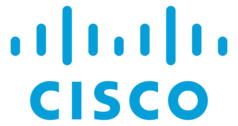Workshops
| Check the technical program here |
IEEE WoWMoM 2021 will host six workshops for presenting novel ideas in a less formal and more focused way than at the conference, as well as stimulating discussions of state-of-the-art, emerging, visionary, and perhaps controversial topics. Accepted WoWMoM 2021 workshop papers will be included and indexed in the IEEE Xplore Digital Library, showing their affiliation with IEEE WoWMoM.
SCHEDULE
| Papers due by | March 15, 2021 [past] |
| Paper selections due by | April 8, 2021 [past] |
| Camera Ready by | April 19, 2021 [past] |
| Event date | June 7, 2021 [past] |
WORKSHOPS
ISMS
Workshop on ICT for Integrated Smart Mobility Solutions
Keywords: smart cities, urban mobility, data science, human data, sharing services
Organizers: Federico Chiariotti (Aalborg University), Andrea Zanella (University of Padova), Federico Librino (IIT-CNR)
Mobility is a key aspect in the management of modern cities, as growing traffic and Desenvironmental concerns place an ever greater emphasis on public transportation and micro mobility. The dual challenge posed by climate change, which requires a shift away from private driving and towards sustainable solutions, and pandemic risks, which are mitigated by avoiding crowded spaces and agglomerations of people, will have an important role in the cities of the future. In this context, ICT and data science can help in many ways, both as a basic enabler through mobile technologies to track people and manage multiple modes of transportation and as a tool of analysis: graph theory methods have been applied to the analysis of flows of people and transportation networks, and machine learning techniques can uncover hidden patterns that can improve the efficiency of existing services. Furthermore, there is the possibility to exploit the synergy between transport and ICT systems to improve the latter, not just the former: the abundance of mobility data and other transport information from the Smart City infrastructure and sensors can help manage mobile networks, improving coverage and Quality of Service for network users as well as providing a better transit experience.
SC2
2nd Workshop on Smart Computing for Smart Cities
Keywords: smart computing; smart cities; data analytics; smart city applications; computing and
communication
Organizers: Anish Jindal (University of Essex), Angelos K. Marnerides (University of Glasgow), Petros Spachos (University of Guelph), Amit Dvir (Ariel University)
Smart computing has a big role to play in the development of the smart cities. The advanced networking paradigms such as programmable and virtual networks, growth in communication technologies like 5G, and use of advanced computing infrastructure such as fog/edge/cloud computing can all contribute in the applications related to smart cities. With the penetration of Internet of things (IoT) devices in smart city applications, smart computing has become all the more relevant in terms of managing and processing the data. The applications in smart cities can be computing-intensive, network-intensive, disk-intensive, data-intensive etc. which requires different solution sets in order to effectively solve the issues pertaining to these applications. Hence, the aim of this workshop is to bring together researchers working in the broad area of smart cities using smart computing. The focus of the workshop will be on theoretical and experimental components of communication, networking and system-oriented techniques that tackle challenges in smart cities using smart computing
SwarmNet
3rd Workshop on Wireless Networking, Planning, and Computing for UAV Swarms
Keywords: UAV swarms, wireless networking, mobile computing, sensing, planning
Organizers: Nick Mastronarde (University at Buffalo), Fatemeh Afghah (University of Arizona), Jacob Chakareski (New Jersey Institute of Technology)
The goal of this workshop is to bring together researchers working at the intersection of wireless networking, mobile computing, sensing, robotics, and/or planning to address a myriad of fundamental technical challenges that must be solved before UAV swarms can be safely, effectively, and widely deployed.
The workshop is held jointly with NTN-6G.
NTN-6G
Workshop on Non-Terrestrial Networks in 6G Wireless
Keywords: 6G, NTN, satellite communications, UAV, integration of terrestrial and non-terrestrial networks
Organizers: Giuseppe Araniti (University Mediterranea of Reggio Calabria), Helka-Liina Määttänen (Ericsson Research), Sara Pizzi (University Mediterranea of Reggio Calabria)
Next-to-come sixth-generation (6G) networks will face an increasing demand for new unmanned and autonomous applications involving both smartphones and heterogeneous wireless devices on the ground as well as aerial vehicles. Beyond their anticipated role as 6G users, spacecrafts/aircrafts can be leveraged to complement the terrestrial networks by providing connectivity in hotspots and in the areas with intermittent coverage. While mobile wireless networks are currently well integrated with the Internet, present telecommunication solutions may fail to provide a truly anytime and anywhere seamless access. Non-Terrestrial Network (NTN) technologies address this demand by offering wide-area coverage and ensuring service availability, continuity, and scalability. As defined by 3GPP, an NTN is a network where spaceborne (i.e., GEO, MEO, and LEO satellites) or airborne (i.e., Unmanned Aircraft Systems or UASs and High Altitude Platforms or HAPs) vehicles act either as a relay node or as a base station.
The workshop is held jointly with SwarmNet.
Canceled workshops
- 2nd Workshop on Intelligent Things and Services
- 3rd Workshop on Emerging Technologies and Trends in Engineering Low-Power Networks
FURTHER INFO
You are welcome to ask questions or send comments to the Workshops Co-Chairs:
Ana Aguiar, University of Porto and Instituto de Telecomunicações (Portugal)
Andreas Kassler, Karlstad University (Sweden)
Sponsored by |
|
 |
 |
Organized by |
Platinum industry sponsor |
 |
 |
